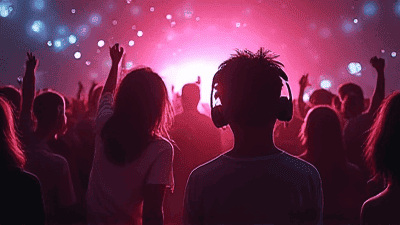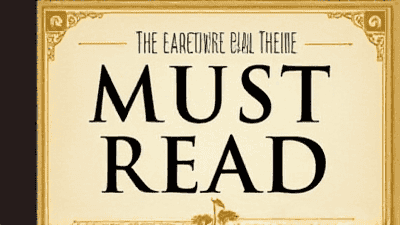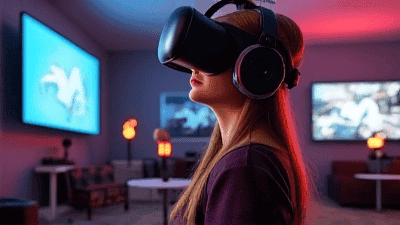
In 2025, social media has become an integral part of our daily lives, affecting how we communicate, connect, and consume content. Platforms such as TikTok, Instagram, Twitter, and others continue to evolve, shaping the landscape of pop culture in ways that are both significant and far-reaching.
The Evolution of Social Media
A Brief History
Social media began as a way for people to connect with friends and family online. Over time, it has transformed into a powerful tool for communication, marketing, and cultural exchange. Platforms such as Facebook and Twitter paved the way for more dynamic and visual platforms like Instagram and TikTok, which have become dominant forces in the digital landscape.
Current Landscape in 2025
By 2025, social media platforms are increasingly focused on short-form video content and real-time interaction. TikTok leads the charge, with its algorithm promoting user engagement and creativity. Instagram has adapted by introducing features like Reels and expanded Shopping functionalities, while platforms like YouTube continue to innovate with features that cater to both creators and viewers.
The Rise of Viral Content

Viral Challenges and Memes
Viral challenges have become a hallmark of social media culture. Users engage in these activities, often replicating dances, lip-syncs, or creative tasks, leading to widespread participation. In 2025, these viral trends often serve as catalysts for broader cultural conversations. Memes continue to evolve, providing not only humor but also commentary on current events, politics, and social issues.
Impact on Artists and Musicians
Viral content significantly impacts artists and musicians, with many leveraging trends to promote their work. Songs that accompany viral challenges often gain traction, leading to increased streams and chart successes. For instance, a catchy tune featured in a popular challenge can catapult an artist to fame almost overnight, highlighting the interconnected nature of social media and the music industry.
Fandoms and Community Building
Social media has empowered fandoms to form and thrive. Fans of particular shows, movies, or music artists convene online, sharing their passions, theories, and artistic creations. This communal aspect enhances the engagement of content and creates a sense of belonging among followers. Fandom culture is now influential in shaping release strategies for films and albums, as studios and record labels actively listen to their audiences.
The Transformation of Celebrities
Influencer Culture
Influencers have become the new celebrities of the digital age. By 2025, they wield significant power over public opinion and consumer behavior. Many traditional celebrities have adapted to this shift, collaborating with popular influencers to reach younger audiences. This relationship changes how brands market themselves, as influencer endorsements often carry more weight than traditional advertising.
Authenticity and Relatability
The success of influencers lies in their authenticity and relatability. Followers are drawn to figures who share their lives candidly, whether through lifestyle content, beauty tutorials, or personal narratives. As a result, influencers often create tighter bonds with their audiences, leading to increased loyalty and engagement. This cultural shift places greater emphasis on genuine connections over polished personas.
The Decline of Traditional Celebrities
Traditional forms of fame, such as actors and musicians, face challenges in maintaining relevance amid the rise of influencers and social media stars. While established celebrities still hold significant influence, many are incorporating social media strategies into their public personas. Engaging with fans directly through Q&A sessions, live streams, or behind-the-scenes content humanizes these celebrities and keeps them relevant.
The Democratization of Content Creation

Accessibility to Tools and Resources
In 2025, technology has made content creation more accessible than ever. Smartphones provide high-quality cameras and editing tools, empowering users to create and share content. This democratization has led to a surge in diverse voices and stories, enriching pop culture and fostering a broader range of representation.
Platform Algorithms and Content Discovery
Social media algorithms now prioritize creative and engaging content, often promoting lesser-known creators alongside established ones. This shift has broadened the landscape, allowing niche creators to find their audience and contribute to mainstream pop culture. For instance, unique culinary content, DIY projects, or unconventional comedy can rapidly gain traction, emphasizing the unpredictable nature of viral potential.
The Intersection of Social Issues and Entertainment
Activism and Awareness
Social media has become a powerful platform for raising awareness about social issues. In 2025, activists often use platforms to disseminate information, organize events, or initiate discussions about critical topics such as climate change, mental health, and social justice. Influencers and celebrities frequently lend their voices to these movements, increasing visibility and mobilizing their followers.
Cultural Relevance in Entertainment
Television shows, movies, and music are increasingly incorporating social commentary. Creators recognize the role of pop culture in shaping societal norms and attitudes. By addressing important issues through entertainment, they engage audiences on multiple levels, stimulating conversation and encouraging action. This trend reflects a growing recognition that art and media can serve as catalysts for social change.
The Globalization of Pop Culture

Cross-Cultural Collaborations
Social media fosters global connectivity, enabling cross-cultural collaborations and the exchange of ideas. By 2025, we see artists, musicians, and creators forming partnerships that transcend geographical boundaries. This trend enriches pop culture, introducing audiences to diverse influences, genres, and storytelling techniques.
Influences from K-Pop and Beyond
The global phenomenon of K-Pop exemplifies the globalization of pop culture. K-Pop groups dominate social media platforms, amassing dedicated fan bases that transcend national borders. Other cultures also experience similar waves of global interest, with music and entertainment from regions such as Latin America, Africa, and the Middle East gaining traction on social platforms.
The Future of Pop Culture in a Social Media Landscape
Innovations on Social Platforms
As technology continues to evolve, social media platforms will likely introduce new features that further impact pop culture. Virtual and augmented reality experiences, enhanced interactivity, and immersive storytelling will create exciting opportunities for creators and audiences alike. The integration of artificial intelligence may also personalize content discovery, shaping how individuals engage with pop culture.
The Role of Content Regulation
With the rise of misinformation and harmful content online, discussions about regulating social media platforms are becoming increasingly important. How social media companies address these concerns will shape the overall landscape of pop culture. Striking a balance between freedom of expression and responsible content promotion will be essential for maintaining a healthy cultural dialogue.
Conclusion: The Continual Evolution of Pop Culture
As we navigate the landscape of 2025, it is clear that social media trends play a pivotal role in shaping pop culture. From the rise of influencer culture to the democratization of content creation and the intersection of social issues with entertainment, social media has redefined how we engage with and consume culture.
This continual evolution invites us to consider our role as consumers and creators in the digital age. As social media continues to transform our cultural landscape, embracing new ideas, diverse voices, and critical conversations will be essential in fostering a vibrant, inclusive, and dynamic pop culture for years to come.








